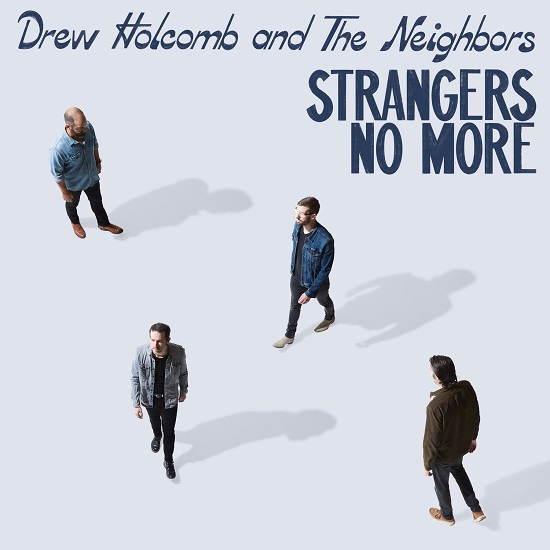
It’s just over three weeks since the World Health Organisation declared that COVID is no longer an emergency and a couple of years since it peaked, but the impact of the virus is still being felt, particularly in the fields of music and leisure. This Drew Holcomb and the Neighbors album was written on either side of the pandemic and pulled together in a way that couldn’t have happened during the emergency. Drew and his band spent eight days in a studio in Asheville NC, playing the songs live and searching for the perfect take. It’s a process with an element of risk but it works if you have good songs and good players; ‘Strangers No More’ has both of those in abundance. Lyrically, the album’s largely positive, emphasising the way forward rather than looking back, and reflecting Drew’s new outlook and more relaxed attitude to performance.
Drew Holcomb’s blessed with a versatile voice, equally at home on the tub-thumpers like ‘Dance with Everybody’ which hints at Springsteen, The Waterboys and Paul Simon’s African experiments, and the more reflective triple time ‘Gratitude’ with its soaring chorus and vocal that resembles Ian Matthews in the mid/late seventies. In fact, the seventies influence looms large throughout the album, sometimes where you least expect it. The album also showcases Drew’s vocal range and the band’s superb use of dynamics, shifting effortlessly from gentle acoustic arrangements to full-on widescreen E Street band arrangements; there’s plenty of variety, all held together by tight arrangements and the quality of Drew Holcomb’s voice.
And what about some of those other seventies references? ‘That’s On You, That’s On Me’ is a wake-up call song that opens with a nod to ‘Stuck in the Middle With You’ and moves on through rock guitar riffs with a country rock feel as the song progresses. ‘Possibility’ and ‘On a Roll’ both have an E Street Band feel while the latter also has a soundscape that seems to reference The Blue Nile. The big surprise is ‘Strange Feeling’, which opens with a ‘Darlington County’ style riff before, morphing into an early seventies Steely Dan sound complete with a guitar solo that could be the legendary Jeff Baxter.
Drew Holcomb and the neighbours succeed in pulling together a variety of styles and influences to create an album feels at the same time familiar and wholly original where everything is there to serve the song. This album will make you think, make you smile and make you want to dance like no-one’s watching – you can’t ask for more than that.
‘Strangers No More’ is released in the UK on Friday June 9th on Magnolia Music.
Here’s the video for ‘Dance with Everybody’:
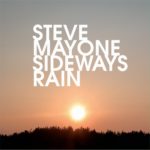 It’s an album of interesting contrasts where the lyrical themes run the entire range of human emotions, from the joy of becoming a parent to the gut-wrenching agony of losing loved ones. Despite the melancholy considerably outweighing the celebratory, “Sideways Rain” still manages to leave you feeling strangely uplifted and a lot of that is down to Steve’s ability create memorable melodies. Steve Mayone’s influences shine brightly through this album with Jeff Lynne-like string arrangements, Tom Petty jangling guitars and some laconic vocals that reference George Harrison. This could so easily have sounded like a Wilburys tribute, but there’s so much more going on, so many more influences, that Steve manages to create a sound that is his alone.
It’s an album of interesting contrasts where the lyrical themes run the entire range of human emotions, from the joy of becoming a parent to the gut-wrenching agony of losing loved ones. Despite the melancholy considerably outweighing the celebratory, “Sideways Rain” still manages to leave you feeling strangely uplifted and a lot of that is down to Steve’s ability create memorable melodies. Steve Mayone’s influences shine brightly through this album with Jeff Lynne-like string arrangements, Tom Petty jangling guitars and some laconic vocals that reference George Harrison. This could so easily have sounded like a Wilburys tribute, but there’s so much more going on, so many more influences, that Steve manages to create a sound that is his alone.
The album’s title song typifies Steve’s approach to writing and performance; he takes a real event from his past, uses this as a symbol of the futility of struggling against insuperable odds in our lives (sometimes you just have to hole up and wait until the storm blows itself out), then creates a lovely melody with a sublime chorus which hints at the late seventies work of Ian Matthews. Of the thirteen songs on the album, the only one I wasn’t entirely convinced by was the cheerful and optimistic “So Many People Get it Wrong”, a song about becoming a father for the first time. But hey, it’s one song and the rest more than make up for it, even the raucous, feelgood “The Long Way Home” with the messiest, most joyful guitar solo I’ve heard in a long time.
“Sideways Rain” feels like a very cathartic album, processing the deaths of close family members, contrasting it with the birth of a son and creating something positive and forward-looking. And the other standouts? Well, the last four songs on the album really. “Pretty Mama” is a slow blues with some lovely horns, “Early Morning Train” is a finger-picked ballad from the viewpoint of a driver in a train wreck, while “Strange Bird” and “Save You” have different takes on suicide. I know it doesn’t sound cheerful, but the final message is positive and the album is life-affirming.
“Sideways Rain” is released in the UK on Friday June 30 on Janglewood Records.
 The second of our guest High Five contributions comes from Skye Edwards. Most of you probably know Skye best from her work with Morcheeba but she has also released three excellent solo albums since 2006 (“Mind How You Go”, “Keeping Secrets” and this year’s “Back to Now”). Skye went one better than the Riot Squad by selecting her favourite 5 albums of all-time and it’s fair to say that they are a cracking collection. For what it’s worth, I’ve added some observations and background.
The second of our guest High Five contributions comes from Skye Edwards. Most of you probably know Skye best from her work with Morcheeba but she has also released three excellent solo albums since 2006 (“Mind How You Go”, “Keeping Secrets” and this year’s “Back to Now”). Skye went one better than the Riot Squad by selecting her favourite 5 albums of all-time and it’s fair to say that they are a cracking collection. For what it’s worth, I’ve added some observations and background.
“Exodus” – Bob Marley & the Wailers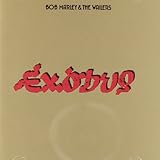
Although Bob Marley had attracted some attention with “Live!” in 1975, it was “Exodus” that catapulted him to international fame in 1977. The album demonstrates every aspect of Bob Marley’s appeal, from the mysticism of “Exodus” and “Natural Mystic” through the yearning of “Waiting in Vain” to the outrageously catchy “Three Little Birds”. I’ll say something here which refers to every album in Skye’s selection; if you’re even slightly interested in music, you should have all of these albums in your collection.
“Hats” – The Blue Nile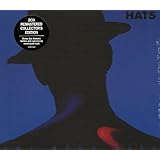
Although this was released at a time when anyone in Glasgow who looked good in 24” waist jeans and shades could get a record deal, The Blue Nile’s second album was a very special and highly influential album. When everyone else in Scotland played guitar-oriented pop, The Blue Nile concentrated on keyboards and samples to produce some ethereal innovative, and evocative music which still sounds great today. They weren’t a prolific band (4 albums in 21 years), but do you want quality or quantity?
“Solid Air” – John Martyn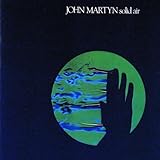
John Martyn was a true innovator and hugely gifted songwriter who really did do it his way. He developed a drawling, laconic vocal delivery and pioneered the use of effects pedals to thicken up his guitar sound (including building up layers of sound using analogue echo units). “Solid Air” was his sixth album and the point where everything came together to create a classic. It’s a tribute to John Martyn’s songwriting that, from this album, “May You Never” was covered by Eric Clapton (on “Slowhand”), “Man in the Station” was covered by Ian Matthews (on “Stealing Home”) and “Solid Air” has been covered by Skye (on the tribute album “Johnny Boy Would Love This”).
“Stronger Than Pride” – Sade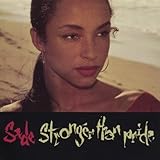
Sade Adu had one of the voices which defined the 80s; a great soul voice which seemed at times to be produced with absolutely no effort. The smoothness of the voice and the arrangements could distract from the genuine quality of the songs at times, but they were great songs. This album came towards the end of Sade’s time in the limelight but was undoubtedly the work of an artist at the top of her game and it’s worth having if only for “Love is Stronger than Pride”.
“The Singles” – Shirley Bassey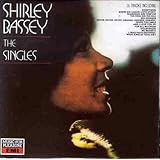
It’s fitting that a singer would choose a Shirley Bassey album as one of their top 5; this is a great collection of songs which includes 2 Bond themes (“Diamonds are Forever” and “Goldfinger”), 2 Beatles covers (“The Fool on the Hill” and “Something”) and the wonderful “Big Spender”. And that’s less than a third of the album. This is a great example of an artist with a fabulous voice working with strong songs and great arrangements to produce truly memorable performances.
Many thanks to Skye Edwards for sharing her all-time favourites with us; tomorrow we have the selection of Steve Jenner, drive-time presenter on Ashbourne Radio in Derbyshire and a man with an ear for a great tune.
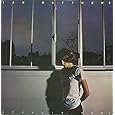 Let’s just start this with a little bit of background. By the mid-70s Ian Matthews had been a member of Fairport Convention, had a UK number 1 with a Joni Mitchell cover and then disappeared from the UK mainstream scene. The name, and the odd single, could still be heard occasionally in the background as punk and new wave barged and elbowed everything else out of the way but you had to be listening carefully. So I listened carefully in 1979 and I heard “Gimme an Inch Girl”, an Ian Matthews cover of a Robert Palmer song which got a bit of radio play but did nothing chartwise.
Let’s just start this with a little bit of background. By the mid-70s Ian Matthews had been a member of Fairport Convention, had a UK number 1 with a Joni Mitchell cover and then disappeared from the UK mainstream scene. The name, and the odd single, could still be heard occasionally in the background as punk and new wave barged and elbowed everything else out of the way but you had to be listening carefully. So I listened carefully in 1979 and I heard “Gimme an Inch Girl”, an Ian Matthews cover of a Robert Palmer song which got a bit of radio play but did nothing chartwise.
During the summer of the following year I was visiting the first love of my life in that wicked London place and I had a bit of time to kill on the way home. The first Virgin megastore had just opened at Marble Arch and that had to be worth a look; there were so many records I didn’t know where to start.
The only album I picked up that day was a cut-out import copy (on blue vinyl) of “Stealing Home” by Ian Matthews. I recognised the single “Gimme an Inch Girl” and thought it was worth a couple of quid for that even if everything else was unlistenable, which was pretty unlikely. I never thought for a second that it would be an album I would love instantly and forever; the first time I listened to “Stealing Home” from beginning to end was a musical epiphany.
The album was recorded in Chipping Norton in Oxfordshire but was aimed squarely at the American market; you can hear it in the lyrics and the arrangements and you can see it in the sleeve design. There wasn’t a chance that it would sell significant amounts in the UK in the aftermath of punk, but that was never the objective. An album with great session players, tasteful (bordering on minimal) FM radio-friendly arrangements and lyrics dealing with American themes was never a commercial proposition in post-punk UK; throw in a singer with a plaintive high tenor voice and, in 1978, USA becomes the target market.
Ian Matthews didn’t really have a reputation as a great songwriter at the time, but he was already known as an interesting interpreter of other people’s songs. He had already scored a UK No.1 in 1970 with a cover of Joni Mitchell’s “Woodstock” and had a stab at Van Morrison’s “Brown-Eyed Girl” which, unbelievably, made no impact on the charts. Nothing I’d heard before prepared me for the beauty of “Stealing Home”.
The album opens with the 1 track I’d already heard, “Gimme an Inch Girl”, which sounded better on my hi-fi than on the radio (no FM in 1979), so I knew I was on to a winner straight away. There isn’t a track on the album that I don’t love, even now. I have to be honest and admit that I’m fairly partial to a melancholy song and this album is full of them.
I admit that I didn’t realise in 1979 that the theme running through the album was the failure of the American dream (and it should have been obvious because I loved “American Graffiti” and “The Last Picture Show”). Ian Matthews picked out songs about the party set, car fanatics and sports groupies to form the backbone of this album. It’s a melancholy album because it looks back at the unfulfilled promise of American lives in the same way that Bob Seger did with songs like “Hollywood Nights” and “Night Moves” and Jackson Browne did with “The Pretender”.
“Don’t Hang Up your Dancing Shoes” is a Terry Boylan song about an attempt to persuade the Homecoming Queen to take one last chance a former beau and sets the tone for the rest of the album, musically and lyrically. “King of the Night” is a poignant ballad written by Jeffrey Comanor (a cult figure at the time who also collaborated with Shel Silverstein on the Dr Hook song “Makin’ it Natural”), which focuses on the plight of the forgotten former street racer and is followed by Matthews’ funky version of the great John Martyn song “Man in the Station”. Side 1 of the album (I bought it on vinyl, so I’m sticking with that format) ends with a fairly rare (at that time) Matthews composition, “Let There be Blues” which keeps the melancholy mood nicely on track.
And then I turned over to Side 2 for the real revelations. The first track, “Carefully Taught”, is a perfect example of Matthews’ ability to completely remake an existing song. The original is a workmanlike Rogers & Hammerstein song from “South Pacific” with very good intentions, played as a fast show song, which Matthews strips back to a half-tempo a cappella version while editing the lyrics to fit everything in to an extraordinary 60 second masterpiece; if you don’t appreciate this, you have no soul. Listen to the original “Carefully Taught” and decide for yourself.
This is followed by a strong Matthews original, the title song, “Stealing Home”, another melancholy song which deals with a disintegrating relationship. The most commercially successful song on the album, “Shake It”, is next, moving the tempo up a few notches while keeping up the theme of nostalgia for a happier era. It’s one of Terry Boylan’s finest moments and was a deserved American chart success.
Next up is another of the album’s revelations and a great example of Matthews’ ability to fit songs to his own mould. “Yank and Mary(Smile)” is a medley which combines the verses from a Richard Stekol song about two ingénues moving to California with the chorus from the Charlie Chaplin song “Smile”. It’s a perfect mix because the two songs blend seamlessly into a beautiful whole.
The two songs which round off the album, “Slip Away” and “Sail my Soul” , are both co-written with Bill Lamb. The first is a mid-tempo song aimed at the same market as “Shake It” and the second is a soulful ballad with some lovely slide guitar which finishes off the album with a positive message that relationships can work sometimes.
If you love great songs, great singers and great arrangements, you should listen to this album. It may be really unfashionable in the current musical climate but this is a beautiful album and it’s one of my closet classics. If you want to find out more about Iain Matthews (as he’s known again now) have a look on his website.
We always welcome feedback at Riot Towers so let us know if you listened to the album and liked (or hated) it. Even better, send us your feelings about your own closet classic and there’s a good chance that we’ll use it on the site.
Also, let us know what you think of using Spotify links to featured songs and albums. How quickly did the links work? If you downloaded Spotify from the link provided, how quickly did it download? Do you like the idea of having instant access to the songs being reviewed? Your feedback will help us to give you a better and more responsive site.
[si-contact-form form=’1′]


